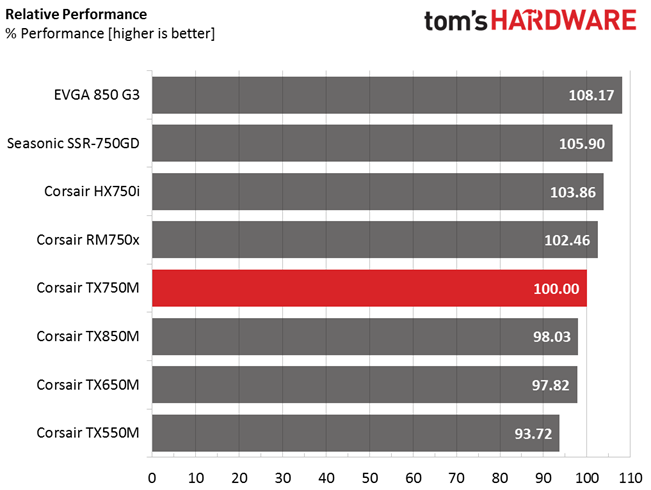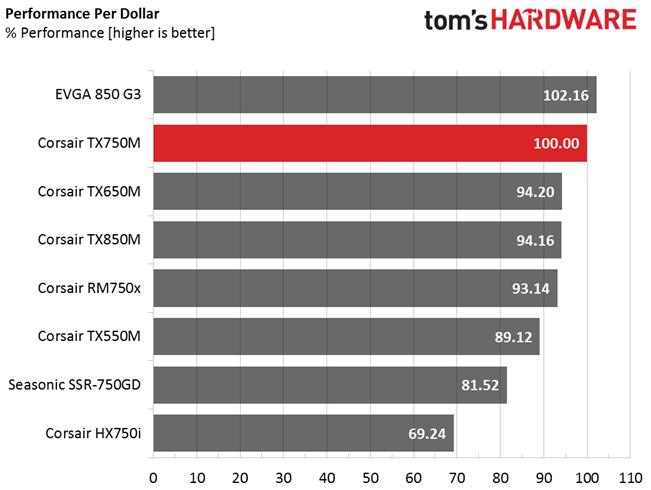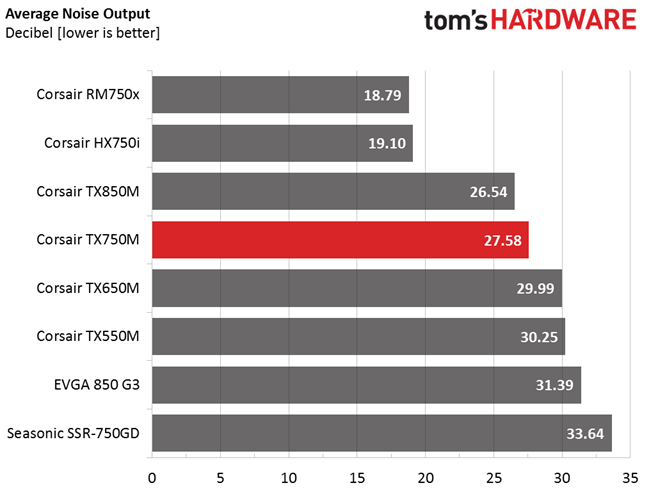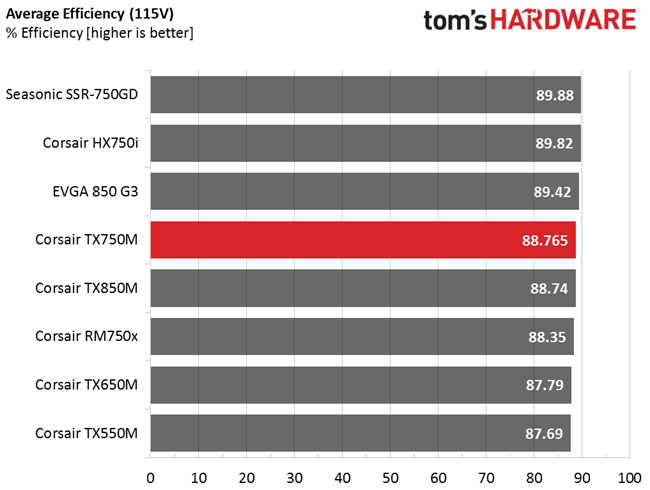Corsair TX750M PSU Review
Why you can trust Tom's Hardware
Performance, Value, Noise & Efficiency
Performance Rating
The following graph shows the TX750M's total performance rating, comparing it to other units we have tested. To be more specific, Corsair's 750W PSU is shown as 100 percent, and every other unit's performance is shown relative to it.
Performance-wise, the TX750M we tested seems to be the family's most compelling member. We might have expected the higher-capacity TX850M to lead, but as you can see in our bar chart, the TX750M is way ahead.
The TX550M lands in last place due to its very low hold-up and power-good hold-up times, along with lackluster load regulation on all rails. It looks like there's quite a bit of variation between the models based on Great Wall's platform; we'd say there's room for upgrades/fixes on the manufacturing line.
Performance Per Dollar
The following chart may be the most interesting to many of you because it depicts the TX750M's performance-per-dollar score. We looked up the current price of each PSU on popular online shops and used those prices and all relative performance numbers to calculate the index. If the specific unit wasn't available in the United States, we searched for it in popular European Union shops, converting the listed price to USD (without VAT). Note that all of the numbers in the following graph are normalized by the rated power of each PSU.
Thanks to good performance and a decent price, Corsair's TX750M achieves a fairly high performance per dollar score.
Noise Rating
The graph below depicts the cooling fan's average noise over the PSU's operating range, with an ambient temperature between 30°C and 32°C (86°F to 89.6°F).
Normally, we'd expect Corsair's TX550M to be the family's quietest member. But because of its efficiency deficit, that's not the case. Instead, the company's TX850M and TX750M score the lowest noise output scores.
Get Tom's Hardware's best news and in-depth reviews, straight to your inbox.
Efficiency Rating
The following graph shows the PSU's average efficiency throughout its operating range, with an ambient temperature close to 30°C.
The TX750M is a bit more efficient than its higher-capacity sibling. The family's other members are left behind in this discipline.
MORE: Best Power Supplies
MORE: How We Test Power Supplies
MORE: All Power Supply Content
Current page: Performance, Value, Noise & Efficiency
Prev Page Ripple Measurements Next Page Final Analysis
Aris Mpitziopoulos is a contributing editor at Tom's Hardware, covering PSUs.
-
NinjaNerd56 I have one of the 'sister' versions of this PSU. I like it a lot. My case is all air cooled, so I never hear the fan on the Corsair.Reply -
Dom_79 So I guess this is a "re-release" of the TX-xxxM semi-modular line?Reply
https://www.newegg.ca/Product/Product.aspx?Item=N82E16817139030
I have one of these ^ sitting in a box somewhere. Not that bad a unit but I hope they don't go through another "V2" fiasco with thise new line. If memory serves, the last time the issue was attributed to using a newer OEM manufacturer...
Great review though! Very thorough and well presented :) -
Nuckles_56 Thanks for the review Aris, it looks like with a few tweaks, this platform could really kill itReply -
Dark Lord of Tech Any chance to review the new CX series released by Corsair recently. Not the M , but the non modular CX.Reply



